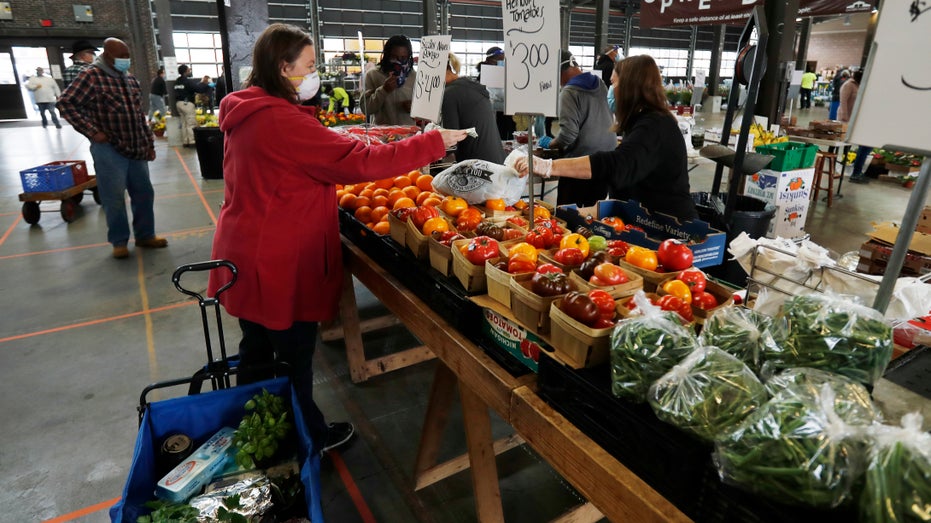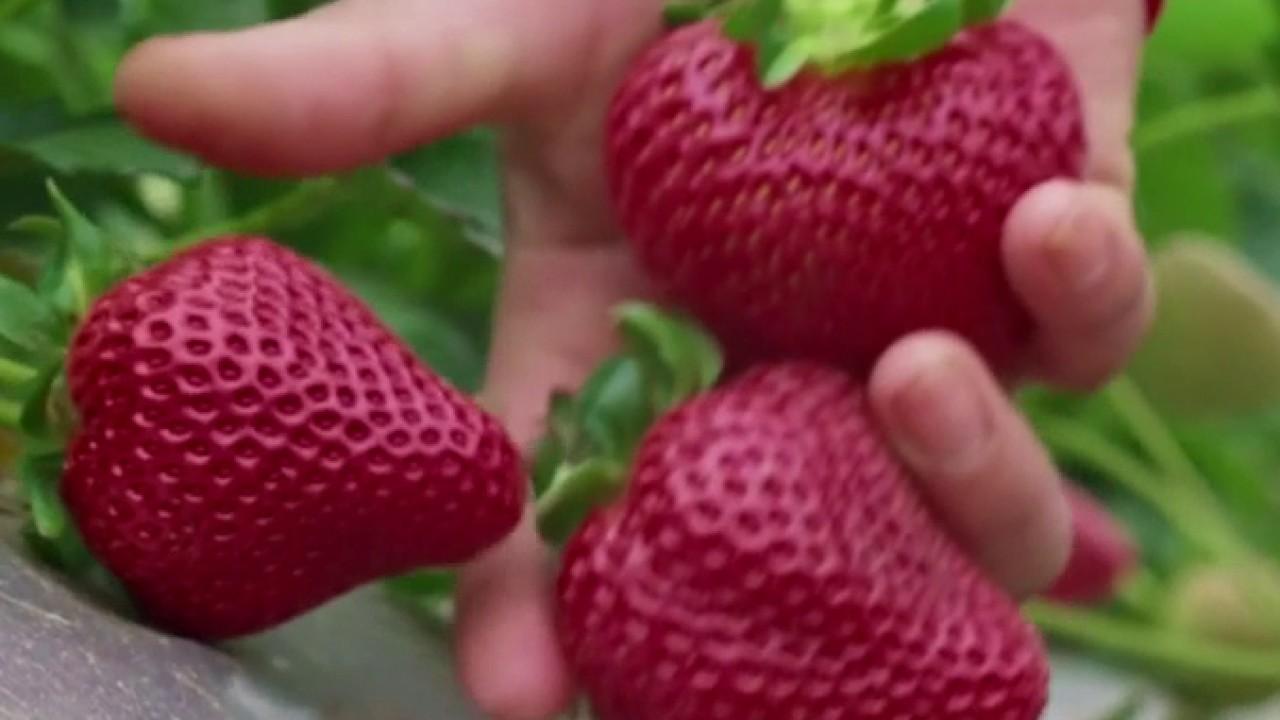Farmers welcome $1.2B in USDA purchases for food banks
The USDA is expected to purchase up to $3 billion in goods
Get all the latest news on coronavirus and more delivered daily to your inbox. Sign up here.
Farmers welcomed the U.S. Department of Agriculture's recent approval of $1.2 billion in contracts to buy fruits, vegetables, dairy and meat directly from producers to donate to food banks and other nonprofits amid the coronavirus pandemic.
The USDA is expected to purchase up to $3 billion in goods as farmers see demand from restaurants dry up and millions of out-of-work Americans seek food assistance.
CORONAVIRUS VICTIM'S FAMILY SUES SAUSAGE PLANT WHERE HE WORKED
"Starting early next week, at my order, the USA will be purchasing, from our Farmers, Ranchers [and] Specialty Crop Growers, 3 Billion Dollars worth of Dairy, Meat & Produce for Food Lines [and] Kitchens," President Trump wrote on Twitter on Saturday. "'FARMERS TO FAMILY FOOD BOX' Great news for all!"
Breakdowns in the supply chain due to coronavirus have caused concern for many farmers. Dairy farmers throughout the nation were forced to pour portions of their milk supply down the drain in April, leading the National Milk Producers Federation to praise the USDA's Farmers to Families Food Box program.
CORONAVIRUS THE DEATH OF THE GROCERY STORE AS WE KNOW IT?
"Innovative solutions are demanded in these unprecedented times, and I applaud USDA for its actions to provide nutritious dairy products to families in need," said Jim Mulhern, president and CEO of NMPF, the largest U.S. dairy-farmer group.

Carrie Simpson shops at the Detroit Farmers Market, May 2, 2020, in Detroit. (AP Photo/Carlos Osorio)
American Farm Bureau Federation President Zippy Duvall also praised the program.
"We applaud the USDA for its quick action and flexibility in finding a way to get food from America's farms to the dinner tables of those who need it most," Duvall said in a statement. "These food purchases will help the hungry while providing income to farmers and ranchers who have seen some markets for their food disappear during the COVID-19 pandemic."




















